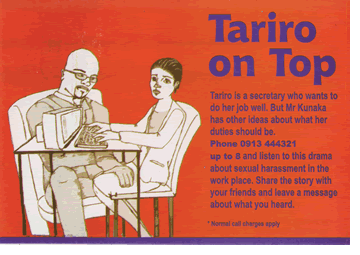This statement from Amnesty International summarises a number of the challenges facing the Constitutional Parliamentary Select Committee (COPAC) outreach process which began last week.
Restrictions of fundamental freedoms undermining credibility of constitution making process
Arbitrary arrest and detention as well as violence against human rights and political activists risk undermining the credibility of Zimbabwe’s just started constitution making process, led by the Constitutional Parliamentary Select Committee (COPAC).
All parties in the unity government should respect and protect the rights to freedom of expression, association and peaceful assembly and ensure that everybody has unfettered access to COPAC outreach meetings. Amnesty International also urges Zimbabwe’s security agents to strictly observe Article XIII of the Global Political Agreement which requires state organs and institutions to be impartial in the discharge of their duties.
Amnesty International’s calls follow reports of arbitrary arrest and detention, and beatings of civil society monitors working under the Independent Constitution Monitoring Project, which is jointly run by the Zimbabwe Election Support Network, Zimbabwe Peace Project and Zimbabwe Lawyers for Human Rights.
On Sunday 27 June, three civil society monitors, Paul Nechishanu, Artwel Katandika and Shingairayi Garira were taken by ZANU-PF supporters to Scarffel Farm in Makonde district (Mashonaland West province) and beaten with logs. Garira sustained injuries to his eardrum while Nechishanu and Katandika suffered head injuries. The attackers also took the monitors’ mobile phones and money. Two of the phones were later returned to them by the ZANU-PF supporters.
The beating of the monitors follows the arrest of another team of monitors – Godfrey Nyarota and Tapiwa Mavherevhedze, and their driver Cornelius Chengu – by police in Mutare on 24 June. The three activists were at Mukunu North Primary School in Mutare North constituency, monitoring the on-going constitution making process. They were charged under Section 81(3) of the Access to Information and protection of Privacy Act (AIPPA) for practicing journalism without accreditation. They were released on $20 bail and remanded to 9 July. Reports indicate that the police arrested the three monitors in Mutare at the instigation of a well known ZANU-PF activist and a member of the Zimbabwe National Liberation War Veteran Association.
Another activist in Mutare, Enddy Ziyera, the provincial coordinator of the independent monitoring project, was detained for several hours and released without charge on 25 June after bringing food for the three activists in detention.
Again on 25 June, in Marondera (Mashonaland East province), three Movement for Democratic Change (MDC-T) activists, Rodreck Shamu, Themba Musimara and another man only identified as Mukunyaidze were taken by unidentified state security agents. They were later found detained at Marondera police station and are yet to be charged.
Background
Consultations for a new constitution are provided for under Article VI of Zimbabwe’s Global Political Agreement (GPA) which explicitly states ‘the fundamental right and duty of the Zimbabwean people to make a constitution by themselves and for themselves’ and provides for the people of Zimbabwe ‘to hold such public hearings and such consultations as it may deem necessary in the process of public consultation over the making of a new constitution for Zimbabwe.’
Over the past six months, Amnesty International has been receiving reports of intimidation in rural areas where villagers were threatened with violence if they do not support ZANU-PF’s position on the new constitution. Initially, the threats were meant to intimidate villagers into endorsing the heavily criticized Kariba draft constitution. The Kariba draft constitution, which was agreed in 2007 by the former ruling party ZANU-PF and the two formations of the MDC without public consultation, has been strongly criticized by civil society organizations as an attempt by the parties to impose a constitution on the population.










